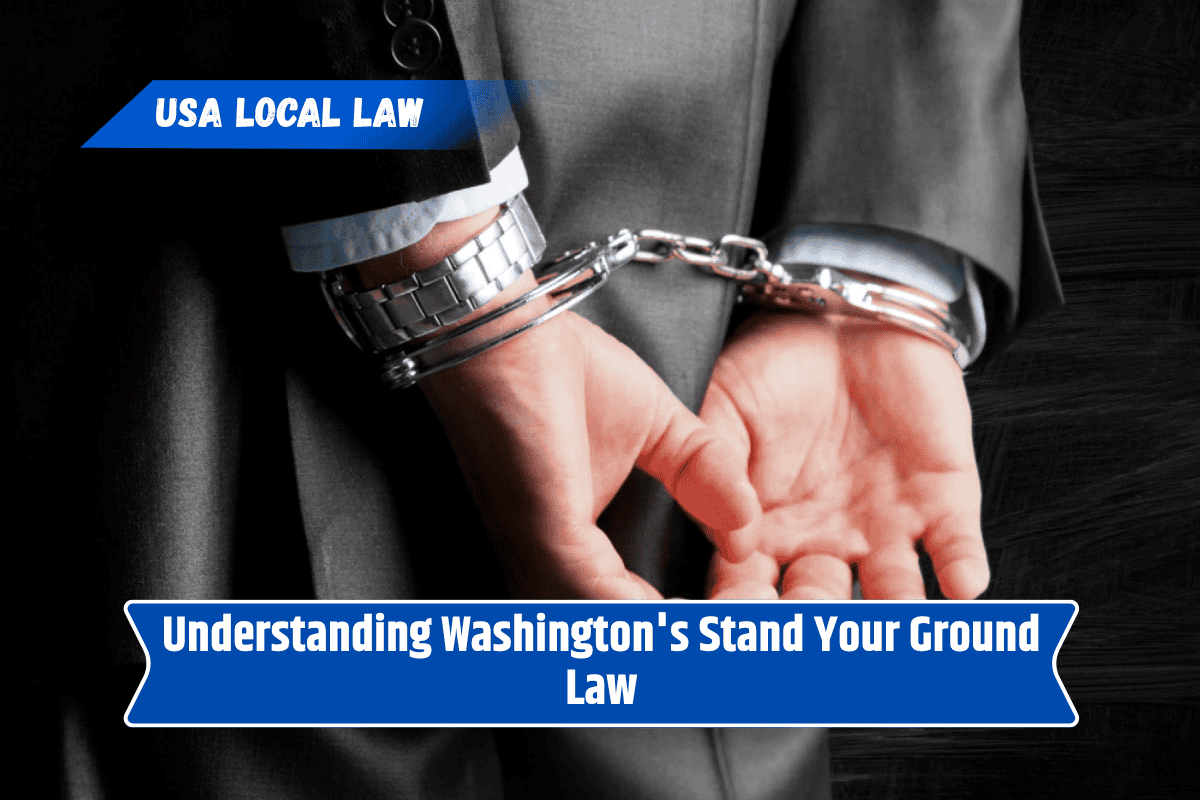In recent years, many people have heard about “Stand Your Ground” laws in different U.S. states. These laws are linked to self-defence and how much force a person can use to protect themselves.
Washington State has its own version of this law. In this article, we’ll explain what the law means in simple terms, how it works, and what rights people have under it.
What Is a Stand Your Ground Law?
A Stand Your Ground law allows a person to defend themselves with force—even deadly force—if they believe they are in danger of serious harm or death.
The main point is that the person does not have to run away or try to escape before defending themselves. Some states clearly have this law written, while others, like Washington, follow it through court rulings.
Does Washington Have a Stand Your Ground Law?
Yes, Washington does follow Stand Your Ground principles. Even though it doesn’t have a specific written law using the words “Stand Your Ground,” the courts in Washington have made it clear that a person is not required to retreat if they are in a place where they have a legal right to be.
This means you can stand your ground and defend yourself if needed.
What Are Your Rights Under This Law?
In Washington, if someone attacks you or threatens serious harm, and you are somewhere you are allowed to be (like your home, workplace, or even a public street), you have the right to protect yourself. You are not legally required to run away first.
But you must believe that the threat is real and serious. If you use force without a good reason or against someone who is not a threat, you can still be charged with a crime.
Is Deadly Force Allowed?
Deadly force can be used only if you truly believe that your life or someone else’s life is in danger. For example, if someone tries to break into your house with a weapon, you may be allowed to use deadly force to protect yourself or your family.
But you cannot use deadly force just to protect property. The law only supports it when there is a real danger to life or serious physical harm.
Difference Between “Duty to Retreat” and “Stand Your Ground”
Some states have a “duty to retreat,” which means a person must try to avoid the danger by moving away or escaping before using force. Washington does not follow this rule. In Washington, if you are not doing anything illegal and are in a place you have a right to be, you do not need to retreat. You can stand your ground.
Does the Law Cover Self-Defence Outside Your Home?
Yes. Washington’s law applies both inside and outside your home. Whether you are on the street, in a parking lot, or at work, you can defend yourself if you face a real and dangerous threat.
However, your response must match the level of threat. For example, you cannot use deadly force against someone just yelling at you or pushing you unless there is a serious danger.
Legal Consequences and Court Review
Even if you believe you acted in self-defence, the police and courts will investigate the case. They will check if your actions were reasonable based on the situation. So, using force without a strong reason can lead to arrest or charges.
That’s why it is important to know your rights but also be smart and careful in stressful situations.
Washington’s Stand Your Ground law gives people the right to defend themselves without running away, as long as they are in a place where they have a legal right to be. This law helps people stay safe in dangerous situations, but it should be used wisely.
You must truly believe that you or someone else is in danger. Misusing this right can lead to legal trouble. Knowing the law can help you act correctly in tough times and protect yourself legally and physically.
